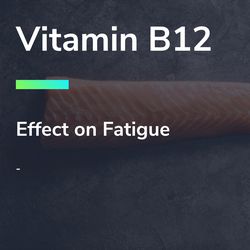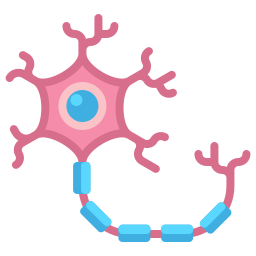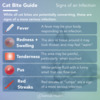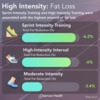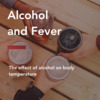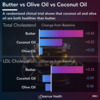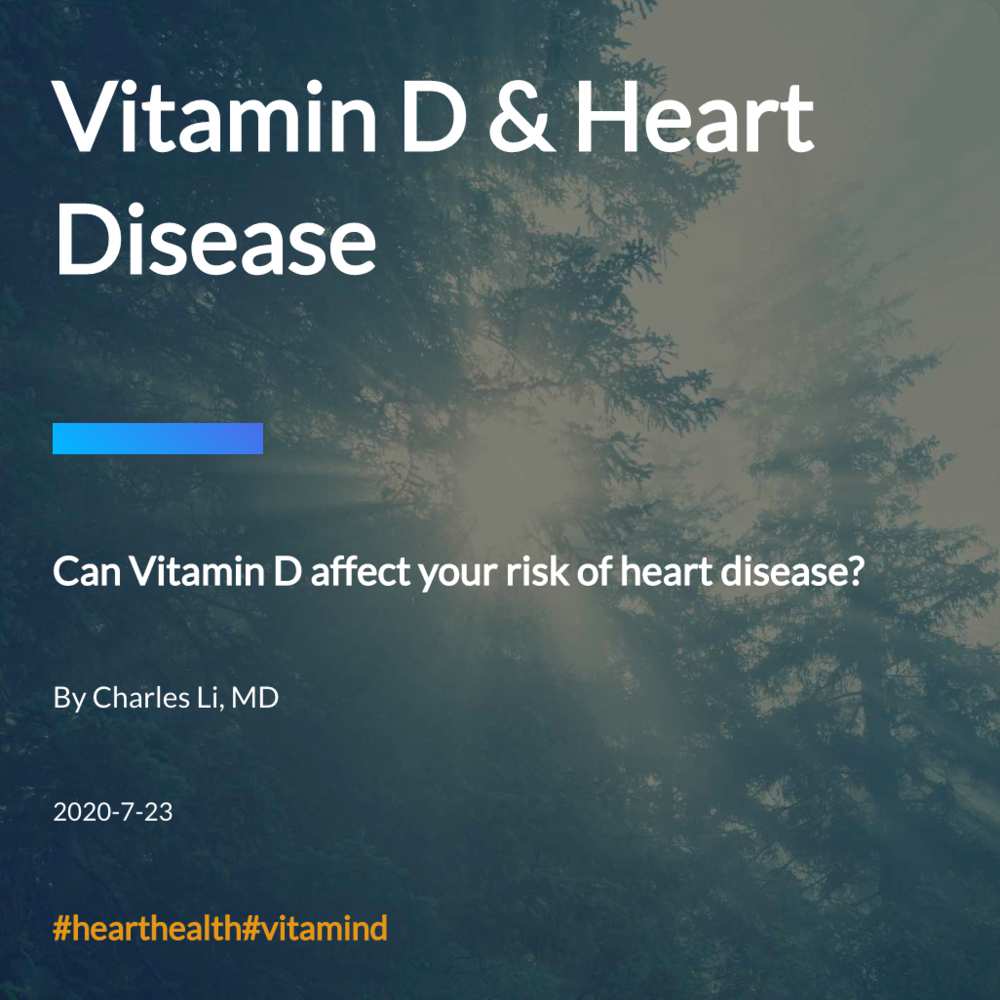
TLDR

1. Vitamin D vs. Heart Health
People with more vitamin D in their bloodstream have significantly better heart health and a lower risk of a heart attack.

2. Vitamin D & Heart Failure
People with high Vitamin D levels also have a much lower risk of heart failure and of dying from sudden cardiac death.
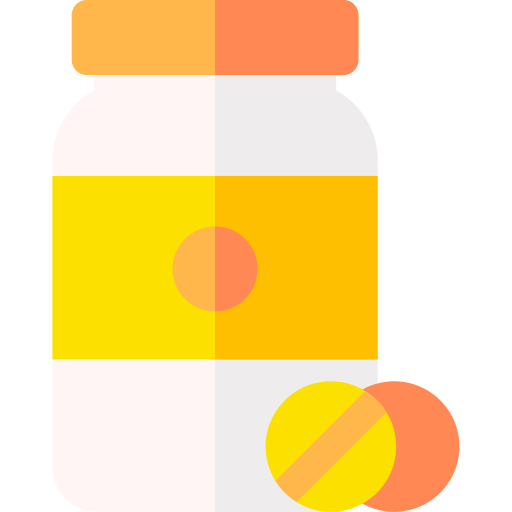
3. Vitamin D & Supplements
But, as with so many things in medicine, correlation doesn't mean causation. Vitamin D supplements have not been shown to prevent heart disease.
Background
what is it?
where to get it
Key Facts
- typefat soluble
- sourcediet, skin
- other namescalciferol, cholecalciferol
Appearance
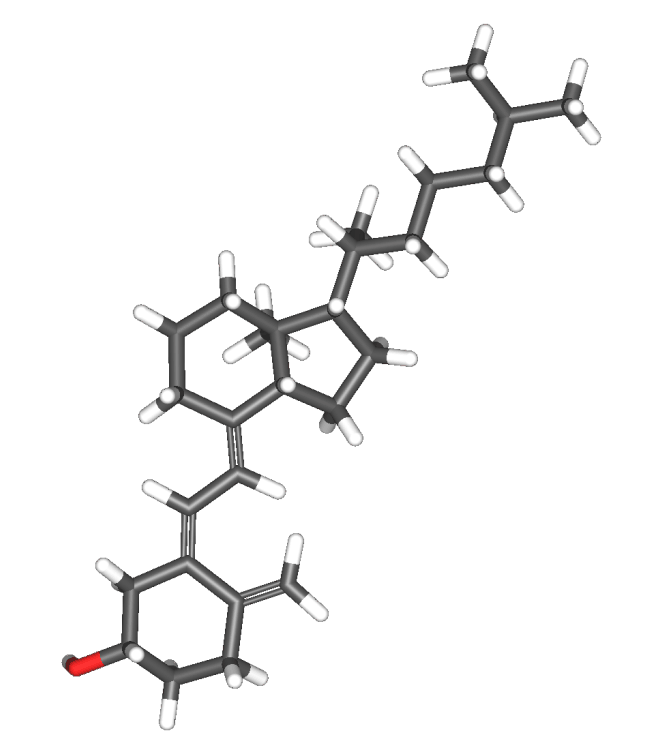
Use List

bone growth

calcium

immunity

the sun
your body can create vitamin D with assistance from the sun

diet
some foods such as milk and fish contain vitamin D

supplements
Vitamin D can also be obtained from dietary supplements

Key facts: Vitamin D plays a key role in bone growth, calcium absorption, and your immune system. Unlike some vitamins, your body can produce it with the help of the sun. Sunlight helps catalyze a key reaction in the production of Vitamin D.
Vitamin D
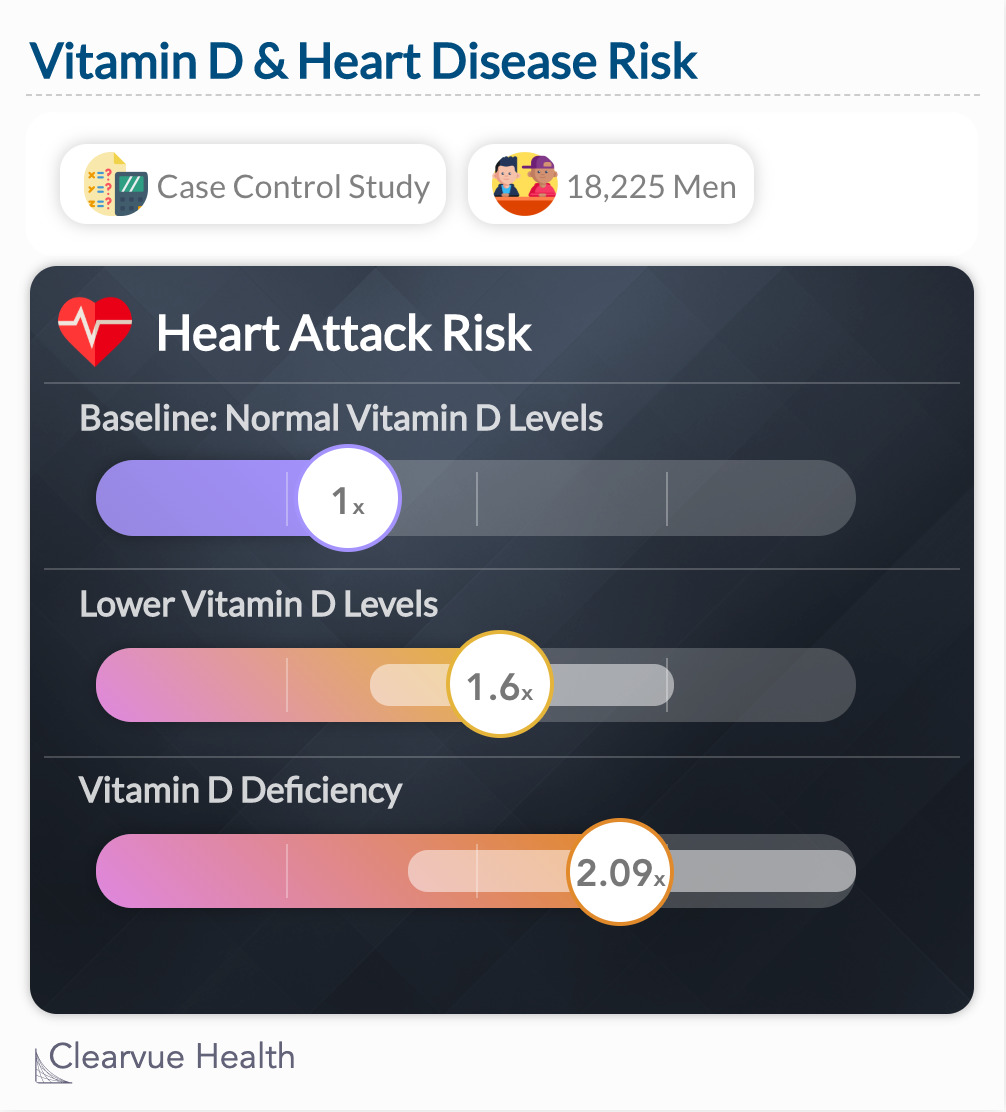
Vitamin D deficiency was correlated with a doubling of heart attack risk compared to those who had normal levels of vitamin D. Having a mild deficiency was similar associated with a 1.6x heart attack risk. All results were statistically significant.
From the study
"Vitamin D deficiency may be involved in the development of atherosclerosis and coronary heart disease in humans...After adjustment for matched variables, men deficient in 25(OH)D (<or 15 ng/mL [to convert to nanomoles per liter, multiply by 2.496]) were at increased risk for MI compared with those considered to be sufficient in 25(OH)D (relative risk [RR], 2.42; 95% confidence interval [CI], 1.53-3.84; P < .001 for trend). "
Study:
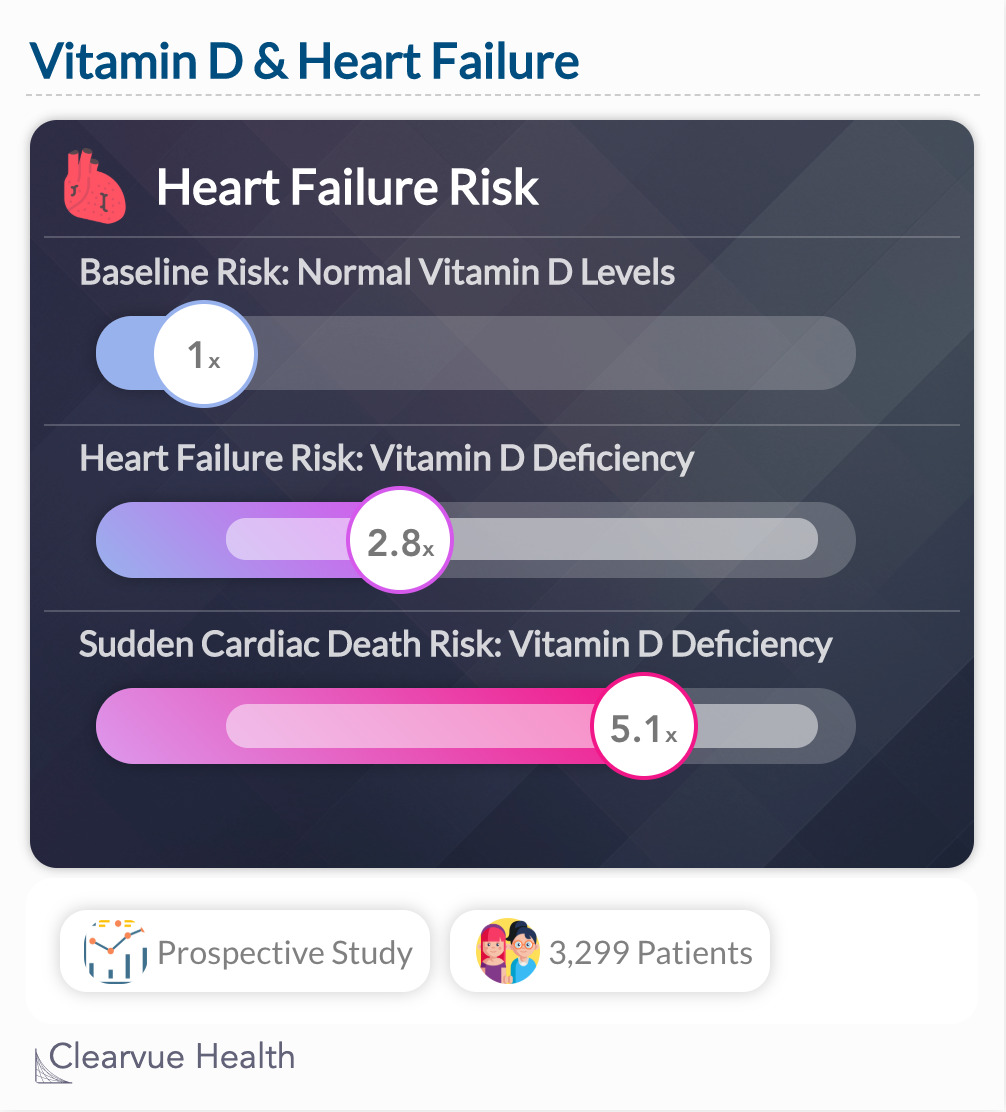
Researchers followed 3,299 patients who had come in for coronary angiography. They found that those with low vitamin D had nearly triple the risk of eventually developing heart failure. Those who had low vitamin D also had nearly 5x the risk of sudden cardiac death.
Data Source:
"Low levels of 25(OH)D and 1,25-dihydroxyvitamin D are associated with prevalent myocardial dysfunction, deaths due to heart failure, and SCD. Interventional trials are warranted to elucidate whether vitamin D supplementation is useful for treatment and/or prevention of myocardial diseases."
Vitamin D Supplements
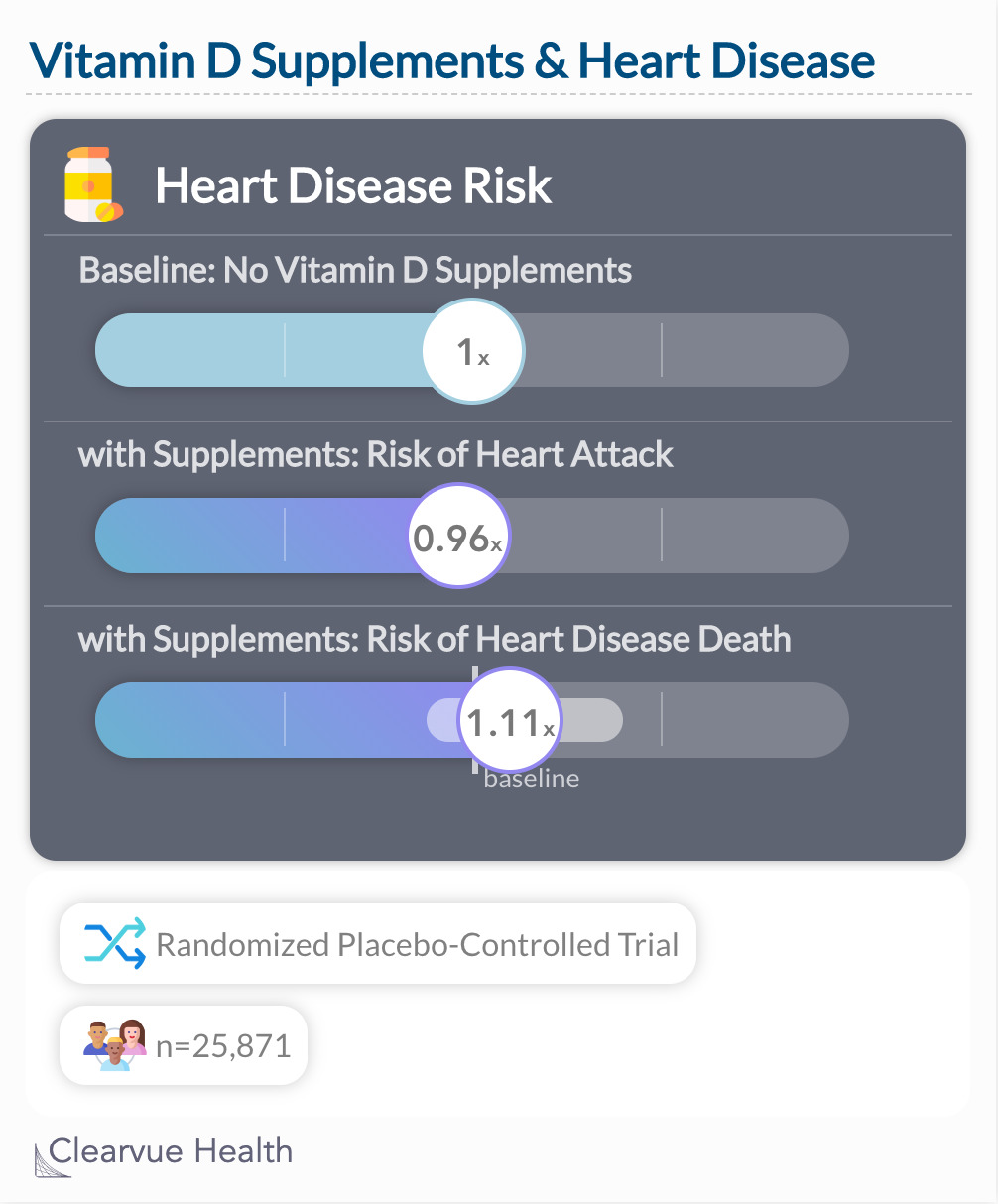
Author Quote
"Supplementation with vitamin D did not result in a lower incidence of invasive cancer or cardiovascular events than placebo...The use of vitamin D did not lead to a significant difference in any of the secondary cardiovascular endpoints or in the rate of death from any cause in the overall cohort or in subgroups."
More Info

#hearthealth
Scroll for more ->
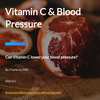
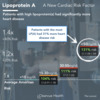
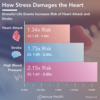


#vitamind
Scroll for more ->

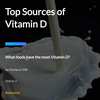
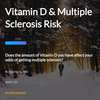

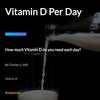
#new
Scroll for more ->
